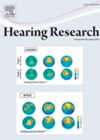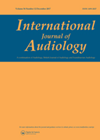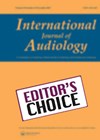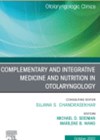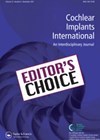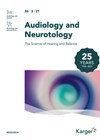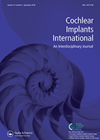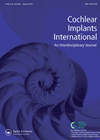
Journal Reviews
Be mindful of exposure
This is a topic which has been highlighted before in the Hearing Research series, as the evidence base regarding the specific impact of acoustic trauma on the auditory system has been expanding regularly in the last few years. This particular...
Third-party disability in cochlear implant users
Hearing loss causes changes for those experiencing it and the people who share in their everyday lives, often referred to as third party disability or caregiver burden. This study emphasises the notion that this phenomenon can be considered a disability,...
Hearing difficulties and memory problems
Since the Lancet Commission report in 2020, we have all been aware that untreated hearing loss is potentially one of the biggest modifiable risk factors for dementia in midlife. Hearing loss is also associated with other risk factors for dementia,...
Ethnic inequalities in hearing aid use
Recent events, including the COVID-19 pandemic, have once again highlighted health inequalities experienced by people from ethnic minority backgrounds. Our Editors’ Choice paper shows that there are inequalities in hearing aid use and includes the stark finding that ethnicity is...
Make food thy medicine!
This is a useful paper emphasising how diet affects health and various ENT conditions. We have known for many years the power of food as medicine. We also know that what we eat can affect our bodies in multiple ways...
Moving towards implanting children below 12 months of age
Newborn hearing screening has ensured that deaf infants are identified soon after birth so that habilitation can begin as early as possible. Cochlear implantation is a key component of early intervention for some children, but it is often not performed...
Robotic insertion of electrode array in cochlear implantation
Cochlear implants (CIs) are commonly used for profound bilateral hearing loss. They have specific national guidance for their insertion, however patients with a substantial residual acoustic hearing are potential CI candidates. Preservation of this residual hearing can be sought with...
Alcohol and hearing
Alcohol is a well-known central nervous system depressant. Individual reactions to alcohol might vary, but the connection between alcohol consumption and tolerance to loud noise or difficulties in communication in noisy environments are well-observed phenomena; for example, at evening parties....
Smartphone hearing test
Our Editors’ Choice for this edition reviews an article looking at the use of a smartphone app for hearing screening. We have all had to integrate telehealth into our practice to some extent recently and this paper examines a teleaudiology...
Quality of life in adolescence
Adolescence can be a difficult time and the added complexity of a hearing loss can exacerbate feelings during this period. In the literature, there are mixed findings that show while some children with hearing loss score poorly on some aspects...
Reasons for attending annual hearing aid review appointments
The aim of this study was to investigate what factors influence hearing aid users’ decision to attend or not attend an annual hearing aid review (HAR) appointment. Two separate surveys were created for attendees and non-attendees. An invitation letter was...
X-ray vs. intraoperative testing for determining cochlear implant placement
Most cochlear implant centres confirm electrode position after surgery using X-rays to ensure optimal electrode placement. As well as transorbital view X-rays, this team check placement using impedance measures and neural response telemetry (NRT) performed intraoperatively. The former indicates whether...

